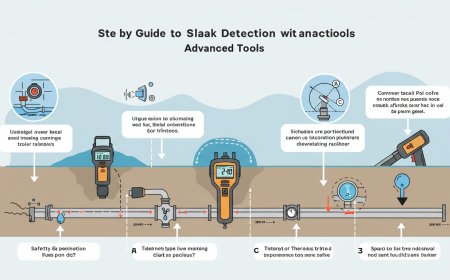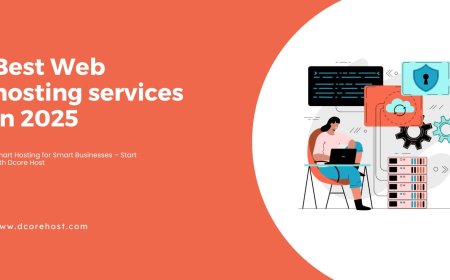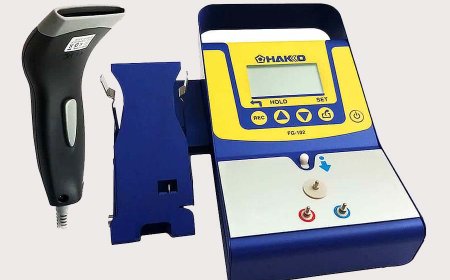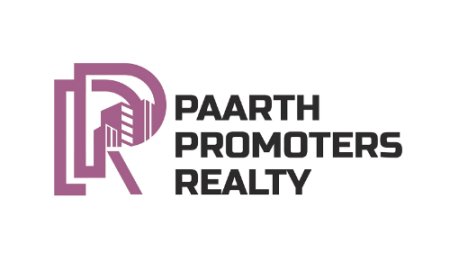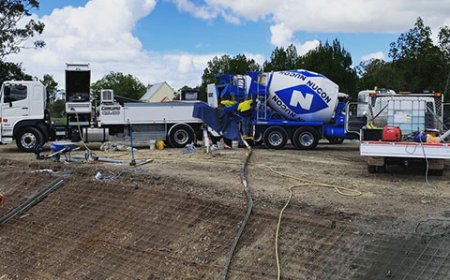Zapier Specialist vs In-House Developer
When it comes to implementing automation, particularly with Zapier, businesses face an important question: Should we hire a Zapier Specialist or rely on our in-house developer?

In a business environment that thrives on efficiency, companies are constantly seeking smarter ways to streamline processes, eliminate repetitive tasks, and scale operations. Whether youre a SaaS startup, a digital marketing agency, or an e-commerce brand, automation isnt just a productivity boosterits a competitive advantage.
When it comes to implementing automation, particularly with Zapier, businesses face an important question:
Should we hire a Zapier Specialist or rely on our in-house developer?
While both options offer value, the path you choose can impact costs, time-to-delivery, and scalability.
In this blog, well break down the pros, cons, use cases, and commercial impact of hiring a Zapier Specialist vs using your in-house development teamso you can make the best decision for your business.
What Is a Zapier Specialist?
Lets start with the basics.
A Zapier Specialist is a professional who designs, builds, and manages automation workflowscalled Zapsusing Zapier, a leading no-code automation platform. These experts understand the logic, conditions, triggers, and multi-step paths needed to connect over 8,000 apps and automate business processes.
Unlike general tech enthusiasts who dabble in automation, Zapier Specialists are trained (and often certified) to:
-
Audit your business processes
-
Map out automation opportunities
-
Build workflows using advanced tools like Webhooks, Filters, Paths, and Code steps
-
Troubleshoot and optimize automations at scale
-
Provide training and documentation for your team
Think of them as your business automation engineerspeople who combine technical know-how with operational insight to create fast, efficient, and cost-effective systems.
What Does an In-House Developer Typically Do?
Your in-house developer is likely a jack-of-all-trades: managing your apps backend, squashing bugs, deploying new features, and keeping your infrastructure running smoothly.
Developers are absolutely essentialbut their primary focus is product development, not automation or third-party workflow integrations.
Heres what an in-house developers day might look like:
-
Writing and maintaining custom code
-
Building app features and functionality
-
Managing cloud infrastructure
-
Debugging front-end or server-side issues
-
Collaborating with product and design teams
Rarely do developers have timeor the operational contextto design Zaps that automate cross-functional business tasks like:
-
Lead distribution
-
Client onboarding
-
Task assignments
-
Payment alerts
-
CRM updates
Which brings us to the next comparison
Head-to-Head Comparison: Zapier Specialist vs In-House Developer
Lets break it down with a side-by-side comparison:
| Feature/Need | Zapier Specialist | In-House Developer |
|---|---|---|
| Speed to Deploy | ? Fast, often within days | ? Slower due to backlog |
| Cost Efficiency | ? Project-based or hourly | ? Full-time salary, benefits |
| Workflow Design Expertise | ? Deep Zapier knowledge | ?? Not specialized |
| Business Process Focus | ? High | ? Low |
| App Integration Skill | ? 6,000+ app familiarity | ?? Needs to research |
| Scalability | ? Built for growth | ?? More dev time needed |
| Error Handling | ? Built-in logging & alerts | ?? Needs custom code |
| Documentation & Handoff | ? Often included | ? Rarely prioritized |
When You Should Hire a Zapier Specialist
Lets look at common scenarios where hiring a Zapier Specialist makes perfect sense:
You Need Fast, Repeatable Automation
Need a lead capture form to update your CRM, notify Slack, and trigger a welcome emailall within minutes?
A Zapier Specialist can build this in hours, not weeks.
Your Developer Team Is Swamped
Developers are often overloaded with product-related tasks. Offloading operational automation to a specialist reduces bottlenecks and accelerates delivery.
You Use Multiple SaaS Tools
Running your ops through apps like Google Sheets, Notion, Typeform, Airtable, ClickUp, HubSpot, or Stripe? Zapier can connect them alland specialists know the quirks of each.
You're Scaling Fast
As your business grows, repeatable workflows save hours every week. A Zapier Specialist creates systems that grow with your team, not slow them down.
You Dont Want to Maintain Code
Zaps are visual and no-code, meaning your team can tweak them later. No need to dive into a developers GitHub repo to fix a typo.
When Your In-House Developer Is a Better Fit
While Zapier is powerful, its not perfect for every scenario. Heres when your in-house developer might be the right choice:
You Need Deep Platform Customization
If your workflow requires manipulating data within your proprietary database or building something entirely unique, a dev is essential.
Youre Building a Custom App or API
For projects requiring full control over code, security, and server logic, youll need developer support.
Your Tools Arent Supported by Zapier
If your tech stack includes niche platforms not integrated with Zapier, your developer can code custom solutions or use middleware.
You Need Custom Infrastructure
Automating infrastructure-level tasks (e.g., autoscaling, server management) is best handled through code, not Zaps.
Cost Comparison: Zapier Specialist vs In-House Developer
Zapier Specialist
-
Average hourly rate: $50$150
-
Fixed project pricing often available
-
Shorter timeline = lower total cost
-
No benefits or long-term salary required
In-House Developer
-
Salary: $70,000$130,000/year
-
Time cost: Automation delays product roadmap
-
May require hiring additional staff
-
Higher opportunity cost when diverted from product
Conclusion: For business automation tasks, Zapier Specialists typically offer higher ROI and faster turnaround at lower cost.
Flexibility and Maintenance
Zapier Specialist
-
Builds visual, no-code workflows anyone can modify
-
Provides SOPs and documentation
-
Easy handoff to internal team or new staff
-
Monitors and maintains systems via error alerts
In-House Developer
-
Requires code knowledge to modify or troubleshoot
-
Limited documentation unless requested
-
Changes take longer due to dev queue
-
Harder to onboard new team members into workflows
Real Business Scenario: Specialist vs Developer
Case: Scaling a Digital Marketing Agency
The Need: Automate lead intake ? CRM tagging ? Slack notification ? Welcome email ? Google Sheet log.
In-House Developer Route:
-
Estimated 12 weeks
-
Written in custom code
-
Requires future dev support for changes
Zapier Specialist Route:
-
Built in 12 days
-
Fully documented
-
Easily editable by non-dev staff
Outcome:
-
Cost: 60% less with the Zapier Specialist
-
Speed: 5x faster
-
Maintenance: Self-service enabled
How to Choose the Right Zapier Specialist
If youve decided to go the Zapier route, dont just hire the first freelancer with Zapier in their profile. Look for:
Certifications & Case Studies
Check if theyre listed on the Zapier Experts Directory. Request portfolio examples.
Familiarity with Your Tech Stack
The best specialists know your CRM, project tools, marketing apps, and how to connect them.
Business Process Experience
Automation is more than triggers and actionsits about solving business problems.
Communication & Training
Top specialists document everything, train your team, and provide ongoing support if needed.
Final Verdict: Which Is Right for You?
Choosing between a Zapier Specialist and an in-house developer depends on:
-
Your automation goals
-
Timeline
-
Budget
-
Internal resources
-
Technical complexity
But heres the bottom line:
If your goal is to scale operations efficiently, reduce manual work, and free up your team without writing custom codethen hiring a Zapier Specialist is the smart, commercial choice.
























